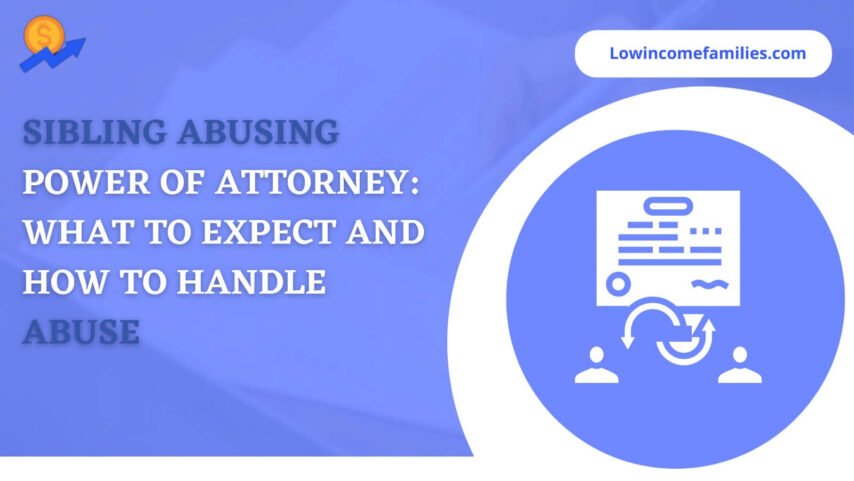Whether you’re planning your estate or helping a loved one with their own, understanding the basics of wills and trusts is an important step. This article will cover everything you need to know – from types of wills to attorneys who can help you create a legally binding document.
We’ll also discuss what to avoid when writing a will and the difference between a will and trust. So read on for all the details!
Types Of Will
A will is a legal document detailing how a person’s assets will be distributed after death. There are many choices, and the kind that is right for a person depends on their circumstances.
-
A Living Will
A living will is a document that details a person’s wishes for medical treatment if they become incapacitated and cannot make decisions for themselves.
-
A Testamentary Trust Will
A testamentary trust will is a document that creates trust after the person’s death. This type of will can be used to protect assets from probate or creditors or to provide for minor children or disabled adults.
-
Pour-Over Will
A pour-over will is a document that transfers assets to a trust upon the person’s death. This type of will is often used in conjunction with a living trust and can ensure that all purchases are transferred to the trust without going through probate.
-
Simple Will
A simple choice is a document that outlines how a person’s assets should be distributed after their death. This type of will is typically used by people with few assets or who have straightforward wishes for their estate.
-
The Joint Will
The joint will is a document created by two people, typically spouses, who have similar wishes for their estate. This type of will allows both parties to share in the distribution of assets and can help avoid probate if both parties die simultaneously.
-
The Deathbed Will
The deathbed will is the most common type of will. It is a document created near the end of one’s life, typically when the individual is facing death or has a terminal illness. The individual will specify how their estate and assets should be divided upon death. It is a legal document and must be signed by both the individual and their witnesses to be valid.
-
The Online Will
The online will is a will that is created online, typically through a will-writing website or software.
It follows the same general principles as a handwritten will, allowing you to specify how you would like your estate to be distributed upon death. However, unlike a handwritten will, an online choice does not require that you have someone witness it for it to be legally binding. Like any other will, it must still be created and signed properly to be valid.
-
The Holographic Will
The holographic will is a will that is entirely handwritten and signed by the testator. It legally meets the requirements of a good choice in many countries, including the United States. It differs from a typed-up and will type, printed, and signed by the testator. Both are valid and recognized legal documents.
-
The Nuncupative Will
The nuncupative will is a will that is orally declared by the testator and typically only used in special circumstances, such as when the testator is dying or facing a life-threatening event. The requirements vary according to state laws, but the basic elements generally required are two witnesses who can attest to the testator’s wishes and a declaration by the testator that this is their last will. Immediate recognition of these wishes is necessary for the nuncupative choice to be deemed valid and enforceable.
-
Family Wills
When it comes to protecting your loved ones and your assets, a Will is essential. A Will allows you to designate how your property will be distributed after you die and can name guardians for your minor children.
If you die without a Will, your state’s intestacy laws will determine how your property is distributed, which may not be by your wishes. Additionally, if you have minor children, the court will appoint a guardian for them, which may not be who you would have chosen.
Creating a Will is an important part of estate planning, and many things must be considered. You’ll need to decide what kind of Will you want, name an executor, and choose beneficiaries. You’ll also need to decide whether or not to create trust.
There are many types of Wills and trusts, and choosing the one that’s right for you and your family is important. An experienced estate planning attorney can help you navigate the process and ensure your wishes are fulfilled.
Can Override A Power Of Attorney
-
Will For Married Couples
If you’re married, you and your spouse will likely want to have wills in place. This is especially important if you have children since a choice allows you to appoint a guardian for them in the event of your death.
A will for married couples can be relatively simple or very complex, depending on your circumstances. However, there are a few key things that should be included:-
- Your full name and address.
- Your spouse’s full name and address.
- A statement indicating that this is your joint will.
- Your signature and your spouse’s signature.
If you have specific instructions or wishes regarding your funeral or burial arrangements, you should include these in your will. For example, you may want to specify that you want to be cremated.
It’s important to note that it will not need to be witnessed to be valid. However, it’s generally a good idea to have at least two witnesses present when you sign your will to avoid any potential challenges later on.
Sibling Abusing Power Of Attorney
Types Of Trusts
A trust is an entity that holds assets on behalf of another person or organization. Trusts can be used for many different purposes. Still, they are often used in estate planning to minimize taxes and ensure that assets are distributed according to the wishes of the person who created the trust.
There are many types of trusts, and the best way to determine which one is right for you is to speak with an experienced attorney who can help you understand your options and make the best decision for your unique situation.
You should also be aware of common pitfalls associated with wills and trusts, such as failing to update your documents when circumstances change or not having adequate asset protection.
By understanding your options and avoiding these mistakes, you can create an estate plan that will work best for you and give you peace of mind knowing that your loved ones will be taken care of after you’re gone.
Trusts can be either revocable or irrevocable. Revocable trusts can be amended or revoked at any time by the settlor, while irrevocable trusts cannot be modified or dissolved once they have been created. Beliefs can also be either living or testamentary.
How Long After a Person Dies Will Beneficiaries Be Notified
Living trusts are made during the settlor’s lifetime, while testamentary trusts are created after the settlor’s death.
Some common types of trusts include:-
- Charitable Trust:- A trust used to support a charity or charity
- Civil Law Trust:- A trust governed by civil law rather than common law
- Common Trust Fund:- A pool of money that a financial institution manages on behalf of multiple investors
- Living Trust:- A trust that is created during the settlor’s lifetime.
- Qualified Personal Residence Trust:- A trust that allows a settlor to place control of their primary residence in the hands of a trustee
- Special Needs Trust:- A trust created to provide for an individual with special needs without affecting their eligibility for government benefits
- Testamentary Trust:- A trust created after the settlor’s death.
What To Avoid In A Will?
One of the most common mistakes people make when creating a will is not being specific enough. You need to include not only who you want to inherit your assets but also how those assets should be distributed.
For example, if you have a bank account with $50,000, simply saying that you want your spouse to inherit the report doesn’t give them any legal authority to access the funds.
You must include language that gives them “power of attorney” over the account or states they are the sole heir to it.
Another mistake people make is not updating their wills regularly. As your life changes (you get married, have kids, etc.), your will should reflect those changes. If you don’t update your choice and something happens to you, your assets may not be distributed as you wanted them to be.
Finally, avoid do-it-yourself wills. While creating a choice may seem easy and inexpensive, many potential pitfalls exist. If you make even one small mistake, it could invalidate your entire will.
It’s always best to consult with an attorney who specializes in estate planning to ensure that your choice is valid and does everything you intend it to do.
Finding An Attorney For Your Will
When you’re ready to create a will or trust, it’s important to find an attorney who can help you. Depending on the complexity of your situation, you may need a lawyer specializing in wills and trusts. You can ask family and friends for referrals or look for an attorney online.
Once you’ve found someone you’re comfortable with, schedule a consultation to discuss your objectives and see if they fit your needs. Be sure to bring any relevant documents, such as financial statements or property deeds.
If you have specific questions about the estate planning process, this is also a good time to ask them. If everything goes well, the lawyer can help you create a legally binding will or trust that meets your goals.
They can also guide how to distribute your assets after you’re gone and answer any other questions you have about the process.
What Type Of Will Leaves Everything To Your Spouse?
If you are married, then in most cases, your spouse will inherit everything from you if you die without a will. This is because, under intestacy laws, spouses are typically first in line to inherit when there is no will.
Inheriting through a choice gives the spouse more control over what they receive and when they receive it. However, there are some circumstances where it may not be beneficial for your spouse to inherit everything from you.
For example, if you have significant debt or tax liabilities, your spouse may be better off not inheriting all of your assets. In this case, it may be better to leave some or all of your assets to other family members or friends.
It’s important to discuss your estate planning goals with your spouse and ensure that you are both on the same page about what should happen to your assets after you die.
If you’re unsure what type of will is right for you, an experienced estate planning attorney can help advise you on the best way to protect your assets and ensure that your loved ones are taken care of after you’re gone.
The Difference Between A Will And A Trust
There are many types of wills and trusts, and it is difficult to know which is right for you. Here, we will explain the difference between a will and a trust and help you understand the benefits of each.

A will is a legal document that states how you would like your assets to be distributed after you die. You can use a choice to leave your property to your spouse, children, or other loved ones. A will can also appoint a guardian for your minor children.
A trust is a legal arrangement in which you transfer ownership of your assets to another person or entity. Trusts can be used for various purposes, including avoiding probate, reducing taxes, and protecting your assets from creditors. Trusts can be revocable or irrevocable.
Suppose you are considering creating a will or trust. In that case, it is important to consult an experienced estate planning attorney who can help you choose the best option for your unique situation.
Tips On Drafting Your Will & Trusts
When you draft your will, there are a few things to remember:-
- State who you want to inherit your assets.
- Appoint a trusted individual to execute your choice.
- Consider setting up a trust to manage your assets after you pass away.
As for trusts, there are two main types: revocable and irrevocable. A revocable trust can be modified or revoked at any time, while an irrevocable trust cannot be changed once created. Trusts can also be used for asset protection and tax planning purposes.
Considering drafting a will or setting up a trust, it’s important to consult with an experienced estate planning attorney. They can help you navigate the process and ensure your documents are properly executed.
Finally, avoid do-it-yourself wills and trusts. While it may be tempting to save some money by doing it yourself, this is a risky proposition. If your documents aren’t properly executed, they could be invalidated in court. So, it’s best to leave it to the professionals.
Conclusion:-
Overall, it’s important to understand the basics of wills and trusts when protecting your loved ones. It would help if you always talked with an estate planning attorney or financial advisor who can help guide you through the process and provide sound advice.
Additionally, be mindful of scams that could jeopardize your property while attempting to make a will or trust. If done correctly, having one of these documents can ensure that all people you wish to get your assets will do without complications upon transferring ownership.
Frequently Asked Questions
What type of will is valid?
two types of wills are generally considered valid: testamentary and living wills. A testamentary will is a written document that is executed according to the formalities required by state law. On the other hand, a living will is an oral or written statement of one’s wishes regarding the administration of medical treatment if one becomes incapacitated.
What’s the difference between your will and God’s will?
When we talk about God’s will, we refer to what God wants for our lives. This can be specific, like a career path or a relationship, or more general, like living a life of purpose and meaning. Your will, on the other hand, is your desires and choices.
What is a will Biblically?
When Christians think about a will, they should consider what the Bible says about it. Biblically, a will is defined as a legal document outlining how a person’s assets will be distributed after death. This document can also be used to appoint a guardian for minor children and make end-of-life care decisions.
What is God’s known will?
When we speak of God’s known will, we are referring to things He has revealed to us in Scripture. This can include His will for our lives, relationships, and work. It also includes His moral choice— His principles for living a godly life.










